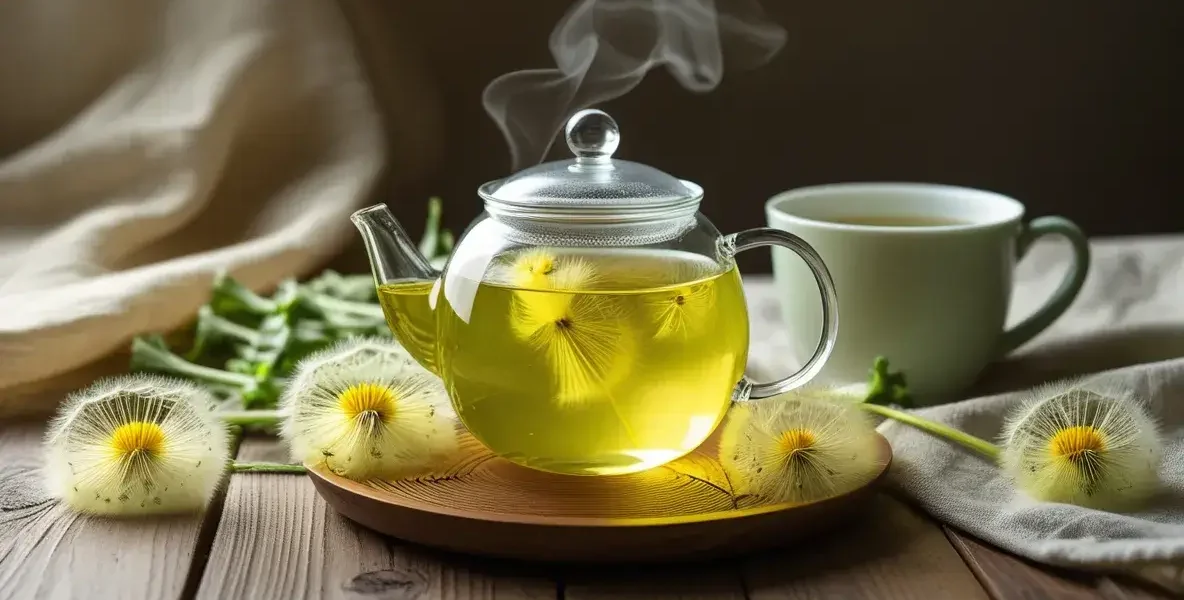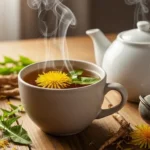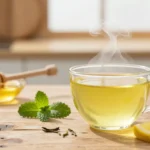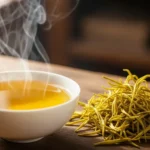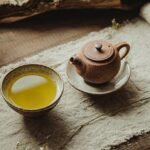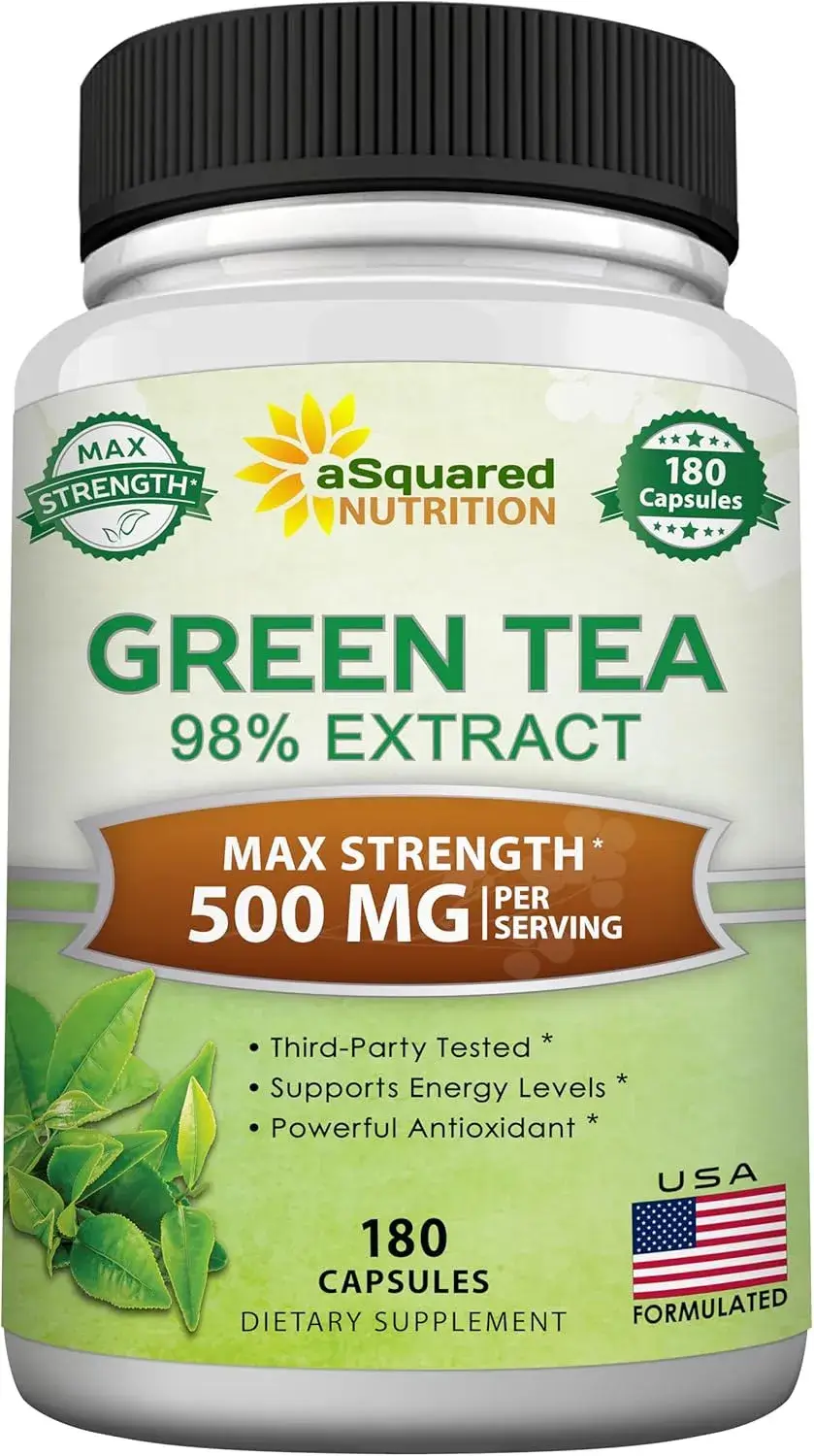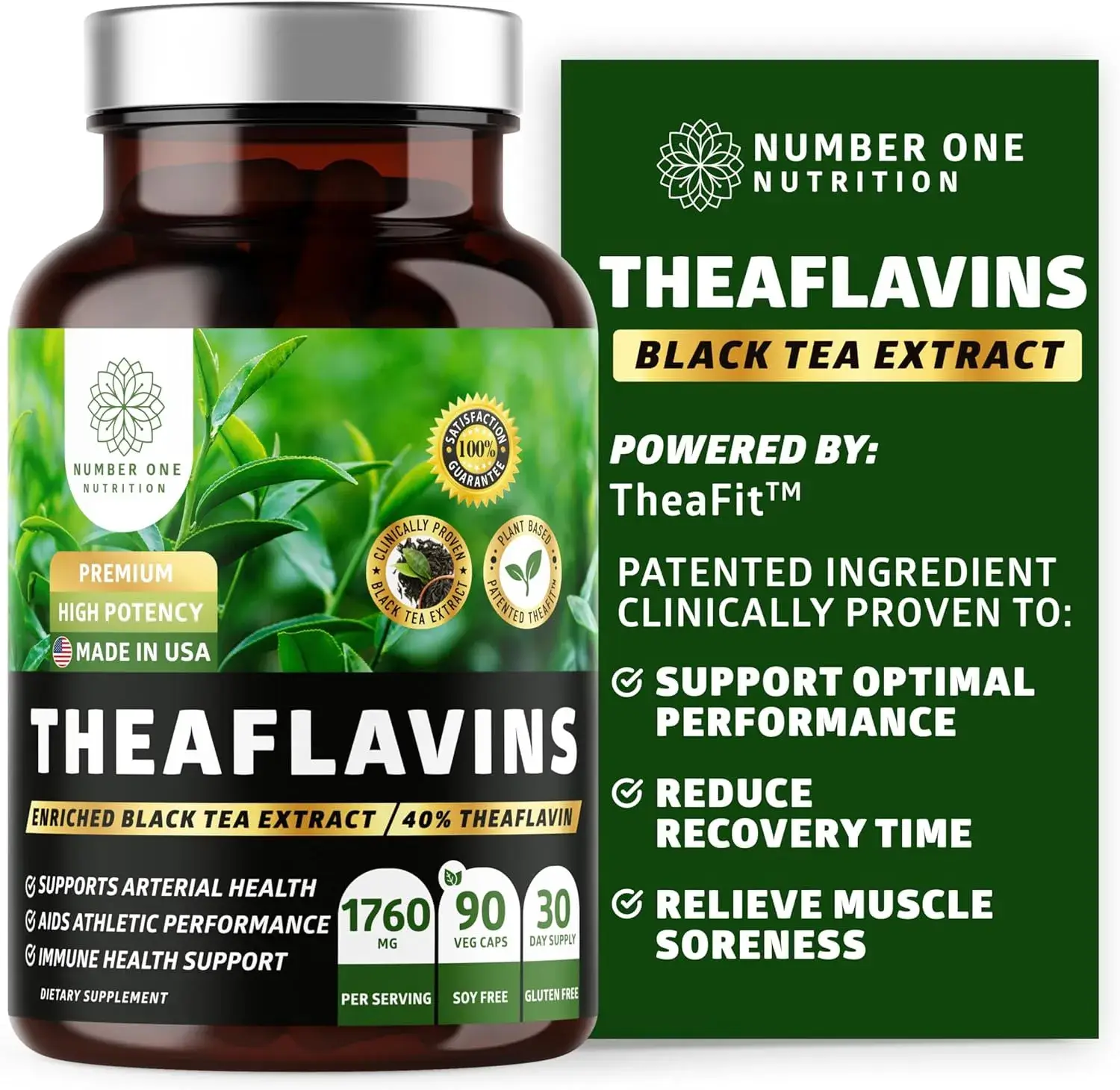Table of Contents
You know those yellow flowers that pop up everywhere, the ones people usually call weeds? Turns out, they might be good for more than just annoying the lawn. Dandelion tea, made from either the leaves or the roasted roots, has been used for ages in folk medicine. People sip it for all sorts of reasons, from helping with digestion to getting rid of bloating. But a big question people have is: is roasted dandelion tea a diuretic? Let’s dig into what the science and tradition say about this common plant.
Key Takeaways
- Yes, dandelion tea, including the roasted root version, is considered a natural diuretic, meaning it can help increase urine output.
- This diuretic effect is thought to help flush toxins from the liver and kidneys and can be beneficial for reducing bloating.
- Beyond its diuretic properties, dandelion tea is packed with antioxidants and may support liver health, cholesterol management, and blood sugar levels.
- While generally safe, dandelion tea can interact with certain medications like diuretics and lithium, and some people may have allergic reactions.
- Both dandelion leaves and roasted roots can be used to make tea, with the root version often preferred as a coffee substitute due to its flavor.
Understanding Dandelion Tea’s Diuretic Properties
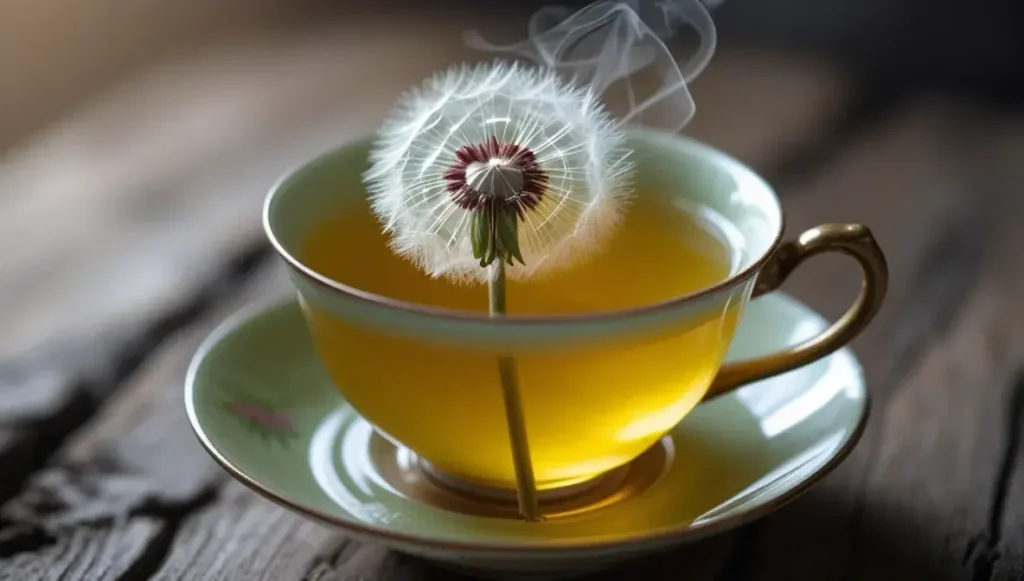
Is Roasted Dandelion Tea A Diuretic?
So, does dandelion tea actually make you pee more? The short answer is yes, it can. Many people turn to dandelion tea as a natural way to encourage increased urine output. This effect is one of the most talked-about benefits, and it’s often linked to its use as a natural diuretic for bloating and water retention. When you drink dandelion tea, it’s thought to help your body flush out excess fluid, which can be helpful if you’re feeling puffy or dealing with temporary water weight. It’s one of those herbal remedies that people have relied on for a long time to help with fluid balance.
How Dandelion Tea Increases Urine Output
Dandelion’s diuretic action is believed to stem from its potassium content and other compounds that may stimulate kidney function. Essentially, it encourages your kidneys to work a bit harder, leading to more frequent trips to the restroom. This isn’t a harsh or sudden effect like some prescription diuretics; it’s generally a gentler, more natural process. Think of it as a nudge rather than a shove for your urinary system. This increased urination can also contribute to the cleansing properties of dandelion root, helping to move waste products through your system.
Here’s a quick look at how it works:
- Potassium Rich: Dandelions are a good source of potassium, which can help balance out sodium levels in the body and support healthy kidney function.
- Stimulates Kidneys: Certain compounds in dandelion are thought to have a mild stimulating effect on the kidneys, promoting urine production.
- Flushes Toxins: By increasing urine output, dandelion tea can aid in flushing out waste and toxins from the body, supporting overall kidney health.
Many folks find that incorporating dandelion tea into their routine helps them feel lighter and less bloated. It’s a simple, natural approach to managing fluid balance.
Dandelion Leaves Versus Roots for Diuretic Effects
When it comes to dandelion tea, you’ll often find it made from either the leaves or the roasted roots. Both parts of the plant are used for their potential diuretic benefits, but there might be subtle differences. Leaf infusions are sometimes considered to have a stronger diuretic effect, possibly due to higher concentrations of certain compounds. Roasted dandelion root tea, while still offering diuretic properties, is also popular as a coffee substitute and is often highlighted for its liver-supporting qualities and its role in cleansing the body.
For those specifically looking for natural diuretics for fluid retention or to increase urine output, both preparations can be effective, though some anecdotal evidence suggests the leaves might have a slight edge for pure diuretic action. It’s worth experimenting to see which you prefer and which works best for you.
Exploring the Science Behind Dandelion’s Effects

Preliminary Studies on Dandelion and Liver Function
Dandelion has a long history in folk medicine, often touted as a liver tonic. Modern science is starting to look into these claims. Some research suggests that compounds found in dandelion, particularly polysaccharides, might help reduce stress on the liver. There’s also evidence pointing to an increase in bile flow, which is thought to aid the liver in its detoxification processes. While these early findings are promising, more in-depth studies are definitely needed to fully understand how dandelion impacts liver health in humans.
Dandelion’s Potential Impact on Weight Management
Interestingly, some research has hinted at dandelion’s potential role in weight management. A Korean study, for instance, explored how dandelion extract might affect the body in ways similar to a weight loss medication called Orlistat. This drug works by blocking an enzyme that breaks down fat during digestion. When tested on mice, dandelion extract showed comparable effects. However, it’s important to remember these are preliminary animal studies, and human trials are required to see if these effects translate to people.
Antioxidant and Anti-inflammatory Compounds in Dandelion
Dandelion isn’t just about potential diuretic or liver benefits; it’s also packed with compounds that fight inflammation and oxidative stress. One such compound is taraxasterol, which has shown significant antioxidant properties. It’s thought to help regulate certain immune responses that can lead to unnecessary inflammation. Additionally, dandelion is a good source of beta-carotene, another antioxidant. These properties suggest dandelion could play a role in overall health by combating cellular damage. The presence of these beneficial compounds is a key reason why dandelion is explored for various health applications.
Here’s a quick look at some key compounds and their potential effects:
- Taraxasterol: Known for its antioxidant and anti-inflammatory actions.
- Polysaccharides: May support liver function.
- Beta-carotene: A precursor to Vitamin A, acting as an antioxidant.
- Inulin: A type of fiber that can support gut health.
While many studies are still in their early stages, often using extracts or animal models, they provide a scientific basis for the traditional uses of dandelion. The diuretic effect, in particular, has seen some limited human investigation, with one study noting increased urine output after consuming dandelion leaf tea. See preliminary studies on its diuretic effects.
👉 Discover the Ultimate Dandelion Tea for Superior Daily Wellness 👈
Traditional Uses and Modern Research

Folk Medicine Applications of Dandelion
For ages, dandelion hasn’t just been seen as a common garden weed. Across Europe and Asia, it’s been a go-to in folk medicine for all sorts of things. People have used it to help with urinary tract infections, reduce inflammation, and even as a way to “detox” the body. It was also a popular remedy for the common cold. Think of it as nature’s multi-tool, with different parts of the plant, like the leaves, flowers, and roots, all believed to have their own special benefits.
Corroboration from Scientific Studies
It’s pretty interesting how some of these old traditions are starting to get a nod from modern science. While we’re still a long way from having all the answers, early research is beginning to back up some of the things herbalists have said for centuries. For instance, studies are looking into dandelion’s potential as an antioxidant and its anti-inflammatory properties.
There’s also talk about its effects on liver function and even its role in managing blood sugar levels. However, it’s super important to remember that most of this research is still in its early stages, often done in labs or on animals. We really need more solid studies on people to say for sure if dandelion works the way traditional medicine claims.
Dandelion as a Natural Remedy for Bloating
One area where dandelion gets a lot of attention is for digestive issues, especially bloating. The idea is that its diuretic effect helps flush out excess fluid, which can make you feel less puffy. Plus, dandelion contains certain fibers that are thought to be good for your gut bacteria. Some folks find that a cup of dandelion tea can really help them feel more comfortable after a heavy meal. It’s one of those gentler, natural approaches that many people turn to when they’re feeling a bit uncomfortable or sluggish.
Preparing and Consuming Dandelion Tea
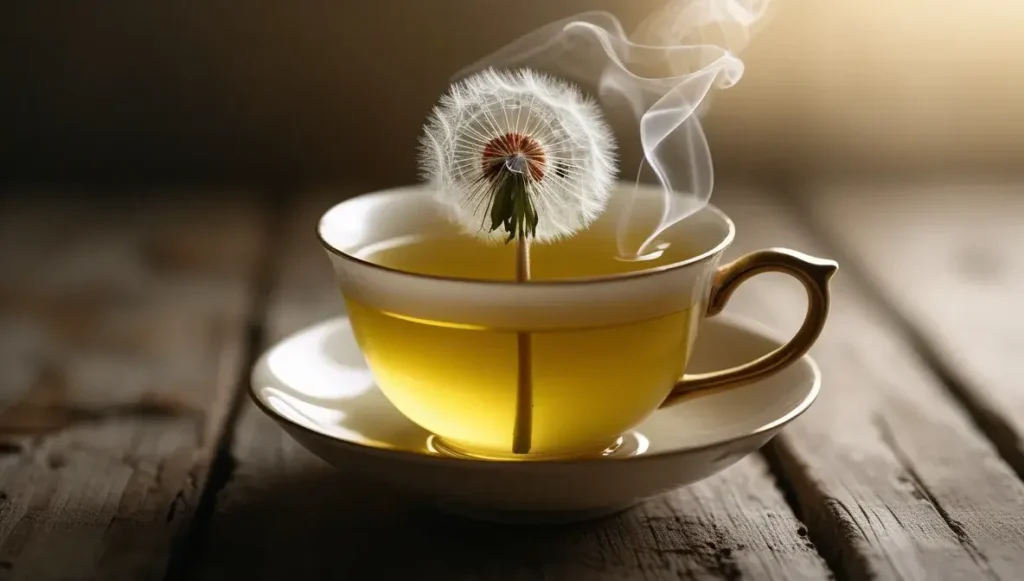
So, you’re interested in trying dandelion tea for its diuretic effects, huh? That’s great! It’s actually pretty straightforward to get your hands on and make. You can find it pre-packaged at most health food stores, or if you’re feeling adventurous and have a yard (that hasn’t been sprayed with any chemicals, mind you!), you can harvest it yourself. Just a heads-up, the leaves are best picked in the spring, while the roots are usually harvested in the fall for their strongest properties.
Harvesting and Preparing Dandelion Roots
If you’re going the DIY route for the roots, make sure to give them a really good wash. You want to get all the dirt off. Then, chop them up into smaller pieces. The next step is to roast them. Spread the chopped roots on a baking sheet and pop them in the oven at a moderate temperature for about two hours, or until they turn a nice, dark brown color. This roasting process gives the root tea that coffee-like flavor that many people enjoy. Once roasted, you can store them in an airtight container.
Brewing Dandelion Leaf and Flower Infusions
Making tea from the leaves or flowers is even simpler. Just gather a handful of fresh leaves or a few flowers (again, make sure they’re from an untreated area). Place them in your mug and pour hot, but not boiling, water over them. Let it steep for about 15 to 20 minutes. This method results in a lighter, more delicate brew compared to the root tea.
Recommended Consumption for Diuretic Benefits
To get the diuretic benefits, consistency is key. Most sources suggest drinking one to two cups of dandelion tea per day. For the root tea, you’ll typically use about one teaspoon of the roasted root per cup of hot water, steeping for around 10 minutes. For leaf or flower infusions, follow the steeping times mentioned above. It’s generally recommended to drink your tea earlier in the day to avoid any potential nighttime bathroom trips. Remember, while dandelion tea is natural, it’s always a good idea to start with a smaller amount to see how your body reacts.
When preparing dandelion tea, especially if harvesting from your own yard, always be absolutely certain that the plants have not been treated with any pesticides or herbicides. This is the most important step to ensure you’re getting a safe and beneficial product.
👉 Experience the Premium Taste of Certified Organic Dandelion Tea 👈
Potential Interactions and Precautions
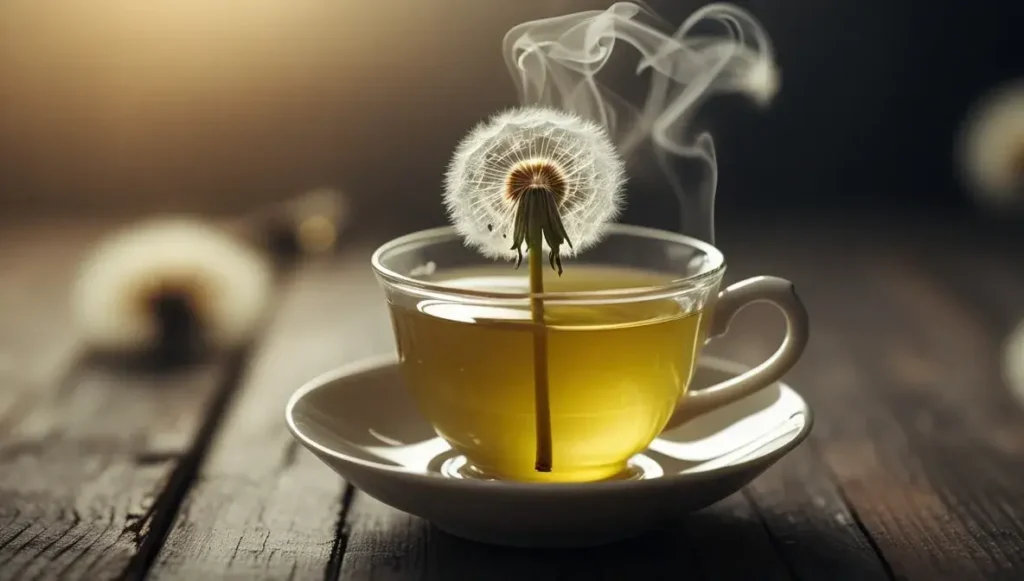
While roasted dandelion tea is often praised for its potential health benefits, it’s super important to chat with your doctor before you start sipping on it regularly, especially if you’re dealing with any health issues or taking medications. It’s not a one-size-fits-all kind of thing, and being aware of potential interactions can save you a lot of trouble.
Dandelion Tea and Medication Interactions
Because dandelion acts as a diuretic, it can speed up how quickly your body gets rid of things, including medications. This means your prescriptions might not work as well as they should. It’s crucial to discuss dandelion tea consumption with your healthcare provider if you’re on any medications.
Here are some common medication types that might interact with dandelion tea:
- Diuretics: Combining dandelion tea with other diuretics can lead to excessive fluid loss, potentially causing dehydration and electrolyte imbalances.
- Lithium: Dandelion can affect how your body processes lithium, a medication often used for bipolar disorder. This could lead to dangerous levels of lithium in your system.
- Antibiotics: Certain antibiotics, like ciprofloxacin, might have their absorption or effectiveness altered by dandelion.
- Blood Thinners: Dandelion’s potassium content could potentially influence blood clotting, so caution is advised if you’re on medications like warfarin.
- Blood Pressure Medications: If you’re taking drugs to manage high blood pressure, dandelion’s diuretic effect could potentially interfere with their action.
Always inform your doctor about any herbal supplements you’re considering, including dandelion tea. They can help you understand the risks based on your specific health profile and current medications.
Allergic Reactions to Dandelion
It’s not super common, but some people can have allergic reactions to dandelion. If you’re sensitive to plants in the daisy family – think ragweed, marigolds, chrysanthemums, or chamomile – you might also react to dandelion. Symptoms can range from mild skin rashes to more severe reactions. If you’ve never tried dandelion before, it’s a good idea to start with a small amount to see how your body reacts. Keep an eye out for any itching, swelling, or difficulty breathing. If you experience any signs of a severe allergic reaction, seek medical help immediately.
Considerations for Specific Health Conditions
People with certain health conditions should be extra careful or avoid dandelion tea altogether. If you have kidney disease, for instance, dandelion’s diuretic properties might not be suitable for you. Similarly, individuals with gastrointestinal issues like IBS or GERD might find that dandelion exacerbates their symptoms, leading to heartburn or stomach upset. Pregnant or breastfeeding individuals should also consult their doctor, as the effects of dandelion in these situations aren’t fully understood. It’s always better to err on the side of caution when it comes to your health, so a quick chat with a medical professional is a smart move before incorporating dandelion root tea into your routine.
Dandelion Tea Beyond Diuretic Effects
So, we’ve talked a lot about how dandelion tea can help you pee more, which is great for flushing things out. But honestly, this humble plant does more than just that. It’s packed with good stuff that can help your body in other ways too.
Dandelion’s Role in Liver Health
Many folks have used dandelion root for ages as a sort of “liver tonic.” The idea is that it helps bile flow better. Some early research backs this up, suggesting that compounds in dandelion might actually help your liver do its job of filtering and detoxifying. It’s not a magic cure, of course, but it’s interesting to think about how this common plant could support such an important organ.
Impact on Cholesterol and Blood Sugar Levels
There’s also some buzz about dandelion affecting cholesterol and blood sugar. Some animal studies have shown that dandelion root extract might help lower high cholesterol levels. And for blood sugar, there’s a hint that it could help manage levels and improve how your body uses insulin. We’re still waiting for more solid human studies, but these early signs are pretty promising for anyone looking for natural ways to support these areas.
Digestive and Gut Health Benefits
Beyond the diuretic and liver support, dandelion tea is also known for its potential to help with digestion. It’s often mentioned as one of the herbal remedies for bloating and fluid retention, which makes sense given its diuretic properties. But it might also play a role in keeping your gut happy overall. The antioxidants in dandelion are also a big plus, helping to protect your cells from damage.
Here’s a quick look at some of the other health effects of dandelion tea:
- Rich in Antioxidants: Dandelion is loaded with antioxidants, like beta-carotene, which help fight off cell damage and oxidative stress.
- Supports Bile Flow: This can aid in the digestion of fats and the elimination of waste products.
- May Aid Weight Management: Some research suggests dandelion might inhibit enzymes involved in fat digestion, potentially assisting with weight loss efforts.
While dandelion tea is often praised for its diuretic effects, its benefits extend to supporting liver function, potentially influencing cholesterol and blood sugar, and contributing to better digestion. It’s a versatile plant with a long history of use in traditional medicine, and modern research is starting to explore these varied health effects.
It’s pretty neat how a plant that grows so readily can offer so many potential benefits. Just remember to be mindful of where you source your dandelions if you plan on harvesting them yourself!
So, What’s the Verdict on Dandelion Tea?
Alright, so after digging into dandelion tea, it seems like it’s got some pretty neat potential, especially when it comes to acting as a natural diuretic. Studies suggest it can indeed help you pee more, which might be just the ticket if you’re feeling a bit puffy. Plus, it’s packed with good stuff like antioxidants and might even give your liver a little boost. It’s super easy to find and make, which is a big plus. Just remember, if you’re on any medications or have health issues, it’s always a good idea to chat with your doctor first. But for many folks, a warm cup of dandelion tea could be a simple, natural way to help your body out.
👉 Unlock the Proven Power of Our Revolutionary Dandelion Tea 👈
Frequently Asked Questions
What exactly is dandelion tea and how is it made?
Dandelion tea is a drink made from the dandelion plant. You can use the leaves, flowers, or roots. The leaves and flowers are usually steeped in hot water, while the roots are often roasted first to give the tea a coffee-like flavor before steeping.
Can dandelion tea really help me pee more?
Yes, dandelion tea is known to act as a natural diuretic. This means it can help your body get rid of extra fluid, which might make you need to go to the bathroom more often. This is why it’s sometimes used to help with bloating.
Is it safe to drink dandelion tea every day?
For most people, drinking dandelion tea every day is generally considered safe. Some experts suggest starting with one cup a day and seeing how your body reacts, especially because of its diuretic effect.
Are there any side effects or people who shouldn’t drink it?
While generally safe, some people might have an allergic reaction, especially if they are allergic to ragweed. Also, if you’re taking certain medications, like diuretics, lithium, or some antibiotics, it’s best to talk to your doctor before drinking dandelion tea, as it can interact with them.
Besides being a diuretic, what other health benefits does dandelion tea offer?
Dandelion tea is packed with antioxidants that help protect your body from damage. It’s also thought to support liver health, potentially help manage blood sugar levels, and may even aid in digestion and gut health.
Can I make dandelion tea myself from plants in my yard?
Yes, you can! Just be sure that the dandelions you pick haven’t been sprayed with any chemicals like pesticides or herbicides. Wash them well, and then you can steep the leaves or roast and steep the roots.
